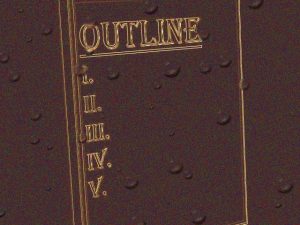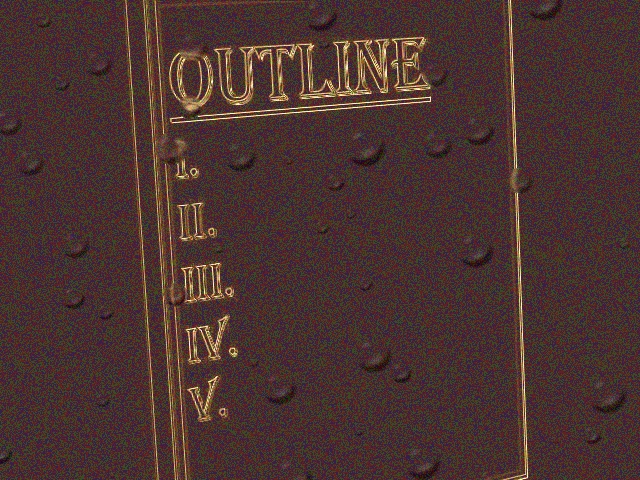
5 Great Reasons to Use Outlines for Our Writing Work
Outlines are great. They can be as long or as short as we want them to be. They don't mind if we use them or not. They won't talk back… Okay, with all silliness aside, outlines have a valuable purpose to us as writers.
When we have a message to share, we often don't have a firm grasp on the details or how to organize the information. This is where an outline comes in. When we set out to write an outline, we put our brains to work. They force us to get some talking points on paper. We can say, "Okay, what are the specific points I want to make in this article?"
In addition to helping us get our talking points on paper, they get our thoughts churning. And the more time we give it, the more thoughts and ideas we'll have.
"I write entirely to find out what I'm thinking, what I'm looking at, what I see and what it means. What I want and what I fear." – Joan Didion
We don't always know what's in our minds until we get our thoughts on paper. It's like creating new ideas. If we're out of the habit of coming up with ideas, we'll find ourselves short of ideas.
But if we write down a ton of ideas, we'll get our creative juices flowing. Pretty soon we'll have to make ourselves stop so we can focus on another part of our business. We can get a little carried away (which is a good thing, mind you, in terms of your writing goals). To keep that creativity going, we need to stick with it. If we push it aside, that spark can start to die out.
So, we can ask ourselves, "What about this?" or "How about that?" We could even come up with a better article or ideas for upcoming ones.
With our talking points in mind, we can draft the sequence of the information so we have an idea of where to start. Or, we can let it happen organically.
For this article, I wrote down five reasons why outlines are important to writers. I didn't set out to write five, but that's what came out. There could be more, but five is a good number.
So, once I had my list, I started writing and the sequence happened organically. As I kept writing, I decided which point from my list to share next based on what words were coming out.
Outlines also help give us direction when we're stuck on what to write. We can look back at our outline and see the next point we wanted to make and start writing about it. When we go through the revision process, we can work on the article's organization and start filling in the holes and creating better transitions.
An outline also helps us stay on track. Getting into the groove of writing can sometimes result in going off on tangents. When you pull yourself back to your outline, you can easily get refocused on the specific message you want to share. Once you go through the editing phase, you may or may not decide to keep that extra writing in your article or book.
Also, when your mind wanders to something other than writing (i.e., those bills you need to pay next month or the barking dogs next door), you can easily get back into the article with a quick look at your outline.
Organization is important for writing an article or book with a clear message. It's easy to go off on tangents when we write or when we speak so having an outline can help us stay focused and organize our work when we've completed the first draft. We don't want to move all over the place; we want our writing to be organized logically–in a way that best suits what we're writing about or the type of writing style we're going after.
An outline also helps us fill in the holes. So, in this post, I have five points (actually six). During the revision process, I elaborated on each point to make the article more organized, useful, valuable, and concrete for my readers. If I had left it as-is after writing the first draft, I'm afraid you would have stopped reading about halfway through. That's why the revision process is a must!
What is your biggest challenge when writing? I'd love to hear your thoughts. Please share them in the comments section below or on my Facebook wall – https://fb.com/jodycalkinsbiz. I look forward to talking with you soon!
- It’s been a long time… - February 10, 2024
- Realizations About Tracking Progress - May 28, 2020
- Goal Setting & Productivity 101 - May 25, 2020
